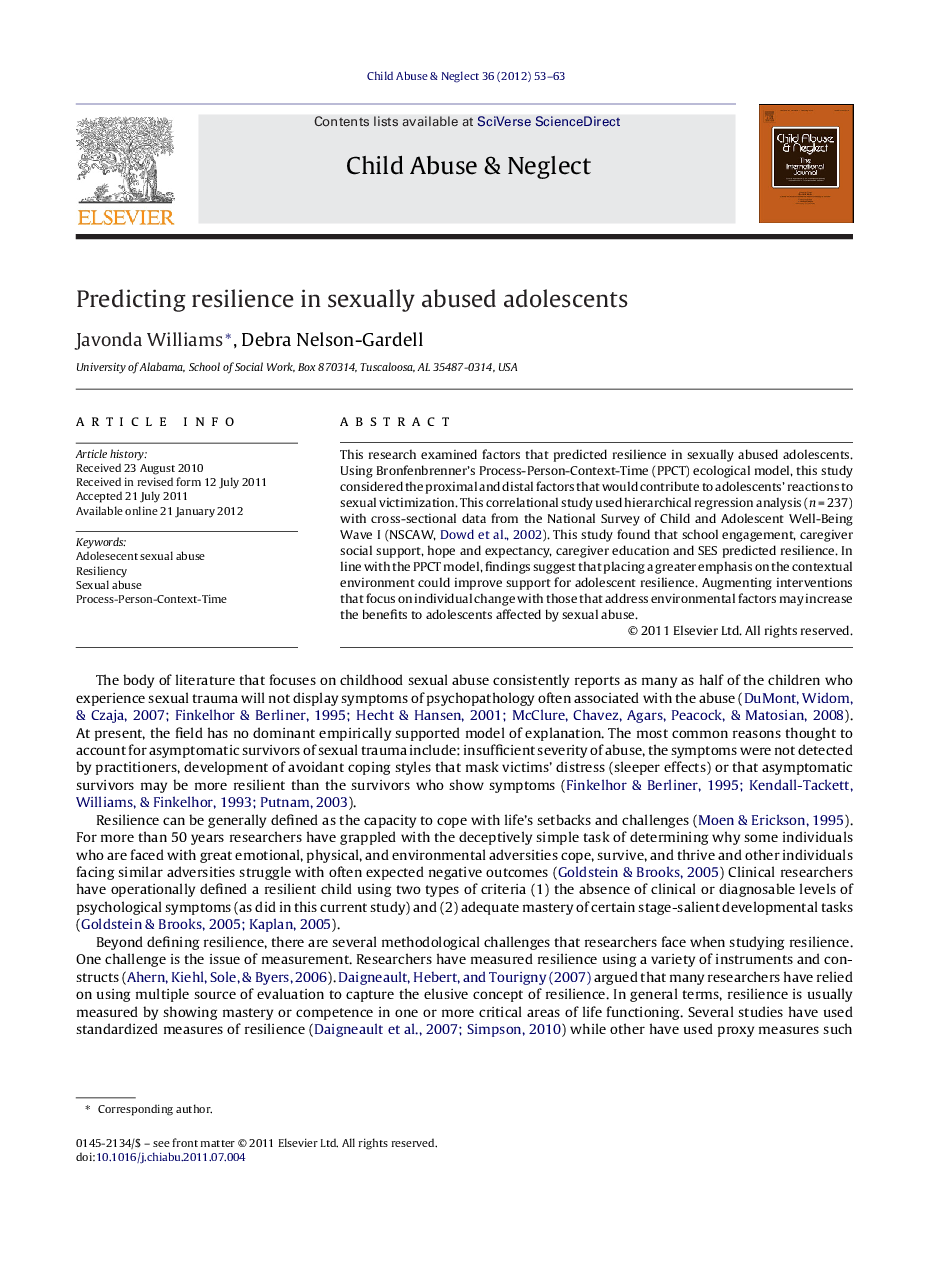| Article ID | Journal | Published Year | Pages | File Type |
|---|---|---|---|---|
| 344917 | Child Abuse & Neglect | 2012 | 11 Pages |
This research examined factors that predicted resilience in sexually abused adolescents. Using Bronfenbrenner's Process-Person-Context-Time (PPCT) ecological model, this study considered the proximal and distal factors that would contribute to adolescents’ reactions to sexual victimization. This correlational study used hierarchical regression analysis (n = 237) with cross-sectional data from the National Survey of Child and Adolescent Well-Being Wave I (NSCAW, Dowd et al., 2002). This study found that school engagement, caregiver social support, hope and expectancy, caregiver education and SES predicted resilience. In line with the PPCT model, findings suggest that placing a greater emphasis on the contextual environment could improve support for adolescent resilience. Augmenting interventions that focus on individual change with those that address environmental factors may increase the benefits to adolescents affected by sexual abuse.
